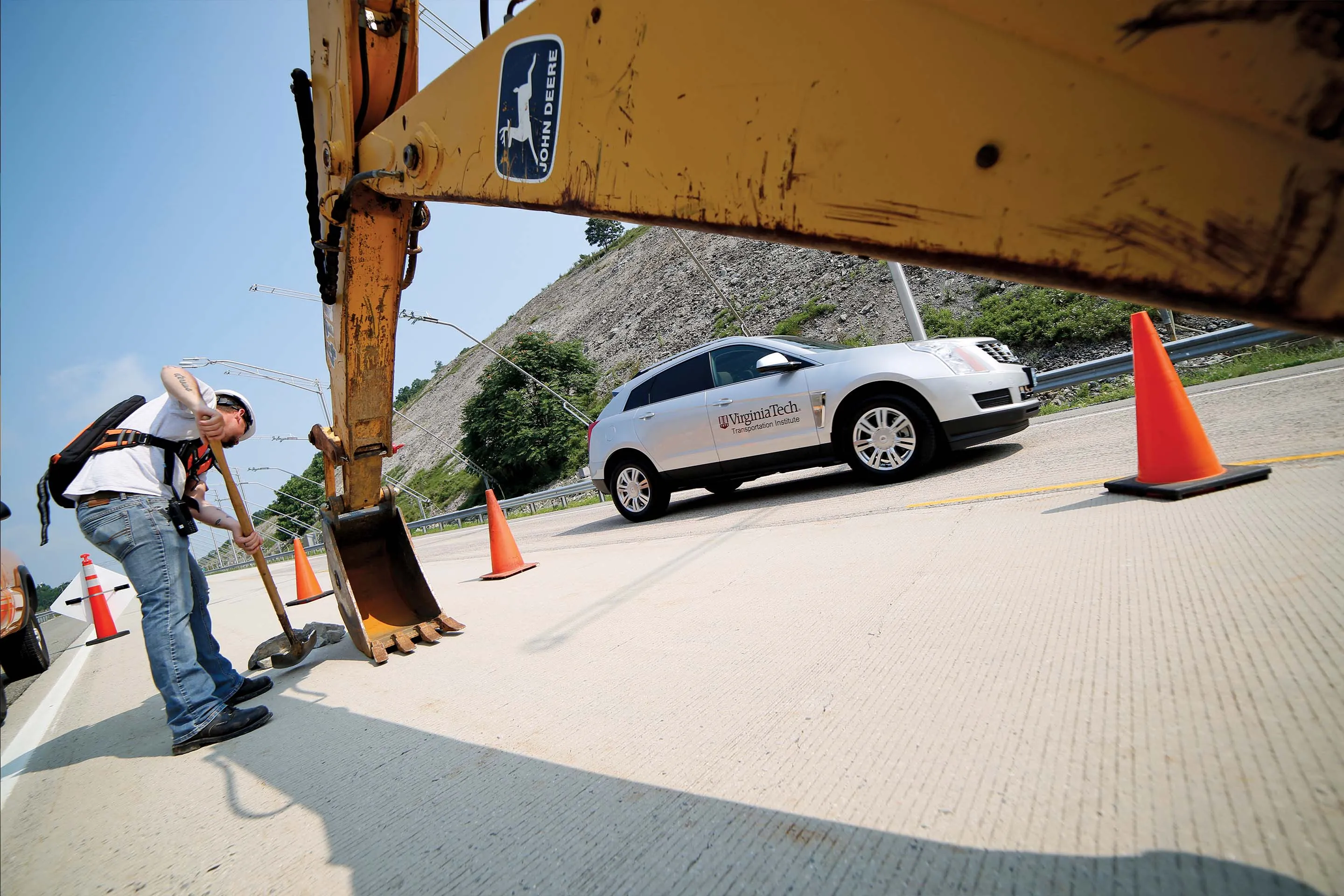The winners of the 6th annual Student Transportation Video Contest by the American Road & Transportation Builders Association’s (ARTBA) have now been announced. High school students from Washington state and Massachusetts, an undergraduate at New York University and a graduate student at Carnegie Mellon were all named as winners. The selections were announced during the recent ARTBA National Convention, held in Tucson, Arizona. The winners will each receive a US$500 cash prize.
The association received 3
October 21, 2016
Read time: 3 mins
The winners of the 6th annual Student Transportation Video Contest by the 920 American Road & Transportation Builders Association’s (ARTBA) have now been announced. High school students from Washington state and Massachusetts, an undergraduate at New York University and a graduate student at Carnegie Mellon were all named as winners. The selections were announced during the recent ARTBA National Convention, held in Tucson, Arizona. The winners will each receive a US$500 cash prize.
The association received 30 entries in all across two categories, general transportation and a new safety category. Sponsored by ARTBA’s Research and Education Division (RED), the contest aims to raise awareness about infrastructure issues. The competition challenges students to develop a brief video exploring various topics relating to America’s transportation network. Submission topics ranged from funding the Interstate Highway System, developing public transit, transportation innovation, infrastructure for cyclists, distracted driving, and autonomous vehicles.
The competition was advertised on college scholarship websites, posted on online video contest sites, shared with Council of University Transportation Centers (CUTC) members and high schools that focus on Science, Technology, Engineering and Math (STEM). It was also shared on ARTBA’s social media accounts. Submissions were reviewed and winners selected by a panel of ARTBA members.
For the General Transportation Category in Age Group One for Elementary, Middle or High School Students, the winner was Josh Jaffe, Seattle Academy, Seattle, Washington State.
Jaffe is an 11th grader at Seattle Academy. His video discusses the need to further develop the city’s public transit system to accommodate a growing population, making suggestions to expand and repair current infrastructure to access more communities.
In Age Group Two for Post-Secondary/College/Graduate Level, the winner was Timothy Gersten, New York University, New York City.
Gersten, a film and television major at NYU, describes in his video how infrastructure is financed through the federal gas tax. He mentions how lagging funding leaves roadways and bridges significantly deficient, and suggests further investment to renew, promote sustainability and develop infrastructure plans.
In the Safety Category for Age Group One, the winner was Christopher Pomeroy, Hopkinton High School, Hopkinton, Massachusetts. Pomeroy’s video discusses the need to incorporate more autonomous vehicles on the road to improve safety for all drivers and reduce road accidents. He is an 11th grader at Hopkinton High.
And in Age Group Two the winner was Abdi Musse, Carnegie Mellon University, Pittsburgh, Pennsylvania. Musse is a graduate student at Carnegie Mellon’s Human-Computer Interaction Institute. His video focuses on the need to improve work zone safety conditions to prevent accidents and deaths. It promotes avoiding distracted driving by limiting phone usage and obeying work zone signage.
to watch all 2016 videos, %$Linker:2 External <?xml version="1.0" encoding="utf-16"?><dictionary /> 0 0 0 oLinkExternal click here Visit youtube channel false https://www.youtube.com/playlist?list=PLYzjLw0HEDAJUhOcbugDPtlqD07XMTKCE false false %>
The association received 30 entries in all across two categories, general transportation and a new safety category. Sponsored by ARTBA’s Research and Education Division (RED), the contest aims to raise awareness about infrastructure issues. The competition challenges students to develop a brief video exploring various topics relating to America’s transportation network. Submission topics ranged from funding the Interstate Highway System, developing public transit, transportation innovation, infrastructure for cyclists, distracted driving, and autonomous vehicles.
The competition was advertised on college scholarship websites, posted on online video contest sites, shared with Council of University Transportation Centers (CUTC) members and high schools that focus on Science, Technology, Engineering and Math (STEM). It was also shared on ARTBA’s social media accounts. Submissions were reviewed and winners selected by a panel of ARTBA members.
For the General Transportation Category in Age Group One for Elementary, Middle or High School Students, the winner was Josh Jaffe, Seattle Academy, Seattle, Washington State.
Jaffe is an 11th grader at Seattle Academy. His video discusses the need to further develop the city’s public transit system to accommodate a growing population, making suggestions to expand and repair current infrastructure to access more communities.
In Age Group Two for Post-Secondary/College/Graduate Level, the winner was Timothy Gersten, New York University, New York City.
Gersten, a film and television major at NYU, describes in his video how infrastructure is financed through the federal gas tax. He mentions how lagging funding leaves roadways and bridges significantly deficient, and suggests further investment to renew, promote sustainability and develop infrastructure plans.
In the Safety Category for Age Group One, the winner was Christopher Pomeroy, Hopkinton High School, Hopkinton, Massachusetts. Pomeroy’s video discusses the need to incorporate more autonomous vehicles on the road to improve safety for all drivers and reduce road accidents. He is an 11th grader at Hopkinton High.
And in Age Group Two the winner was Abdi Musse, Carnegie Mellon University, Pittsburgh, Pennsylvania. Musse is a graduate student at Carnegie Mellon’s Human-Computer Interaction Institute. His video focuses on the need to improve work zone safety conditions to prevent accidents and deaths. It promotes avoiding distracted driving by limiting phone usage and obeying work zone signage.
to watch all 2016 videos, %$Linker:







